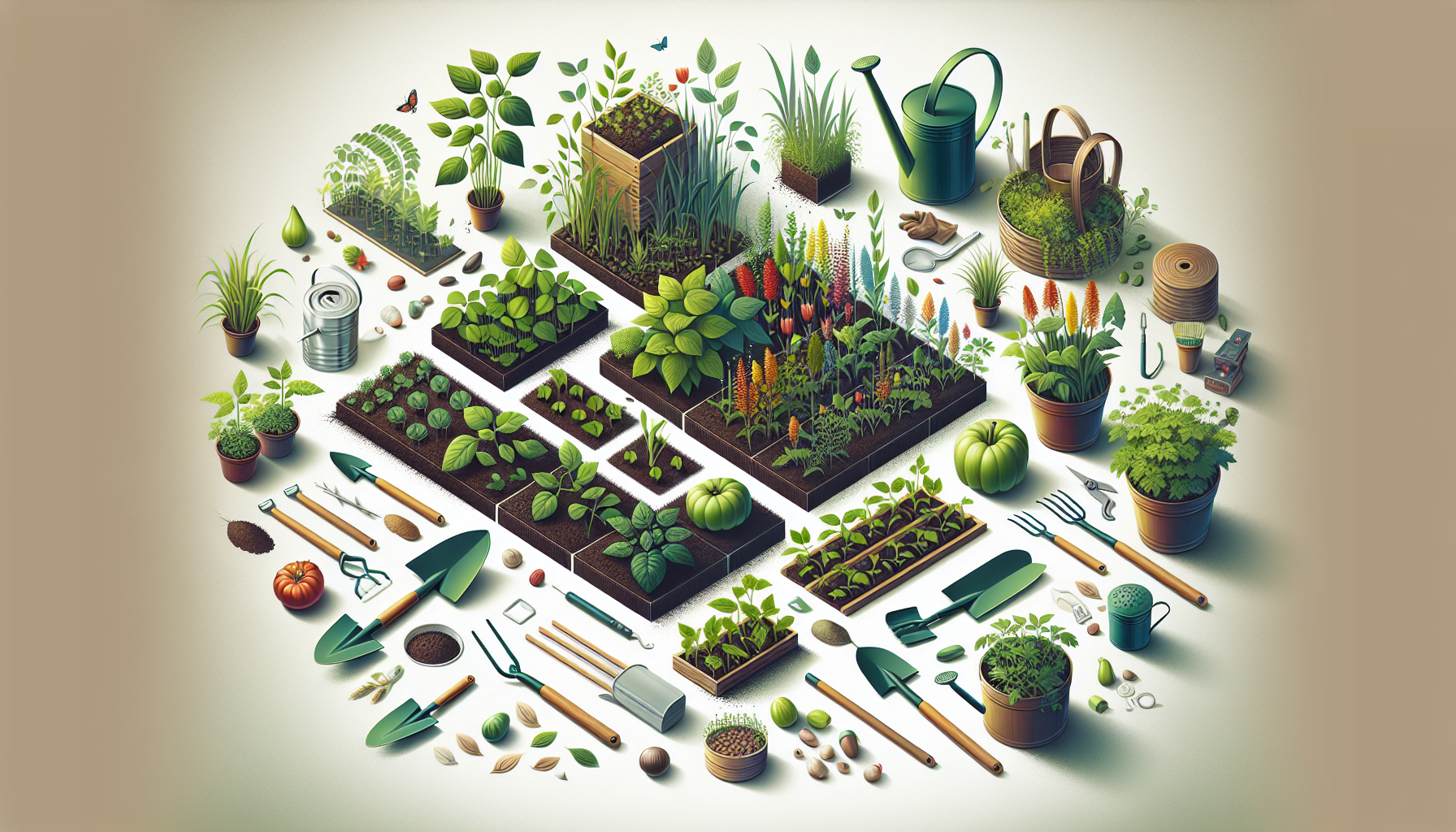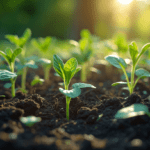Planning the Organic Garden
Embarking on the journey of organic gardening begins with Understanding Your Climate and Soil, a crucial step to ensure the success of your garden. Incorporating Crop Rotation and Diversity plays a pivotal role in maintaining soil health and preventing pests, while Creating a Planting Calendar aids in optimizing plant growth stages throughout the year. This planning phase lays the foundation for a thriving garden that resonates with the cycles of nature.
Soil Preparation and Management
At the heart of organic gardening is Building Healthy Soil, an endeavor achieved through Composting Techniques and the use of Natural Fertilizers and Amendments. This section delves into the essence of nurturing the soil, the very cradle of plant life, ensuring it is rich in nutrients like Nitrogen, Phosphorus, and Potassium, which are vital for the growth stages of plants, from seed germination to flowering and fruiting.
Seed Starting and Plant Propagation
Selecting Quality Seeds is the first step towards a bountiful harvest. This section offers guidance on Techniques for Starting Seeds Indoors and the importance of Direct Seeding and Transplanting, ensuring each plant is given the best start in life. It highlights the significance of the seedling stage, where the foundation of a plant’s life cycle begins, setting the stage for healthy growth and development.
Planting Techniques
Mastering Planting Techniques such as Spacing and Depth Guidelines, Companion Planting and Intercropping, and Succession Planting for Continuous Harvest can significantly enhance the productivity and health of your garden. These strategies are designed to maximize space and nutrients, ensuring each plant receives the care it needs to thrive.
Water Management
Effective Water Management practices, including Efficient Irrigation Practices, Mulching to Conserve Moisture, and Drought-Tolerant Planting Strategies, are essential for sustaining plant growth without overburdening natural water resources. This section emphasizes the importance of water conservation and offers practical tips for maintaining optimal soil moisture levels.
Pest and Disease Management
In the realm of organic gardening, Pest and Disease Management focuses on Preventative Practices and Organic Control Methods. It explores natural ways to protect your garden from pests and diseases, ensuring your plants remain healthy and vibrant without the use of harmful chemicals.
Harvesting and Post-Harvest Handling
The joy of gardening culminates in the Harvesting and Post-Harvest Handling stage, where gardeners reap the fruits of their labor. This section provides insights into the Signs of Maturity for Various Crops, Techniques for Harvesting, and the best practices for Proper Storage to Extend Freshness, ensuring the longevity and quality of your organic produce.
Season Extension Techniques
Exploring Season Extension Techniques such as the use of Cold Frames and Greenhouses, Using Row Covers and Shade Cloth, and Winter Gardening Strategies can significantly extend the growing season, allowing for year-round cultivation of various crops. This section offers valuable guidance for gardeners looking to maximize their garden’s potential, regardless of the climate.
Scaling Up: Moving Beyond the Home Garden
For those looking to take their organic gardening endeavors to the next level, Scaling Up: Moving Beyond the Home Garden provides essential insights into Planning for Larger Scale Production, Equipment and Infrastructure for Small Farms, and Marketing and Selling Your Organic Produce. This section is designed for aspiring farmers and entrepreneurs ready to make a significant impact with their organic produce.
Conclusion: The Future of Organic Gardening
In conclusion, The Future of Organic Gardening reflects on the benefits and challenges of adopting organic practices. It offers encouragement and advice for new organic growers, emphasizing the importance of sustainability, health, and community in the gardening world. As we look towards the future, organic gardening stands as a beacon of hope for a healthier planet and a testament to the enduring bond between humans and the earth.





